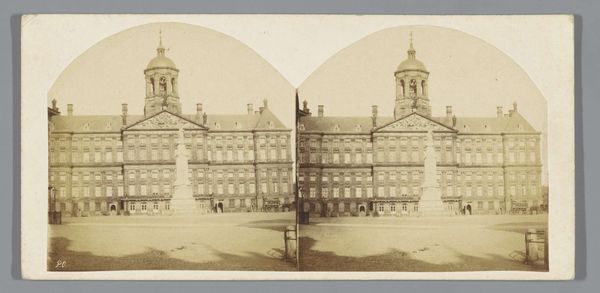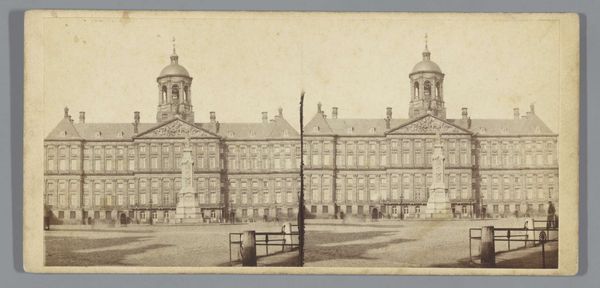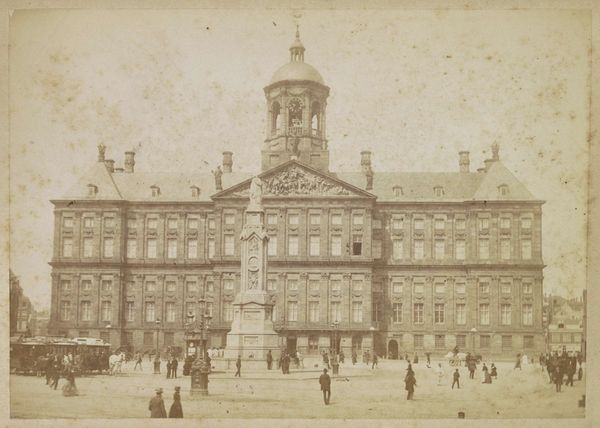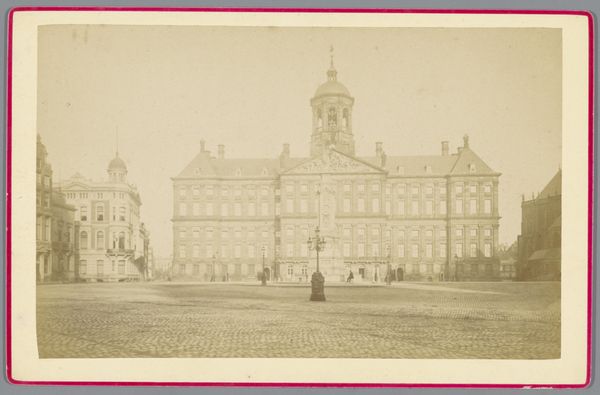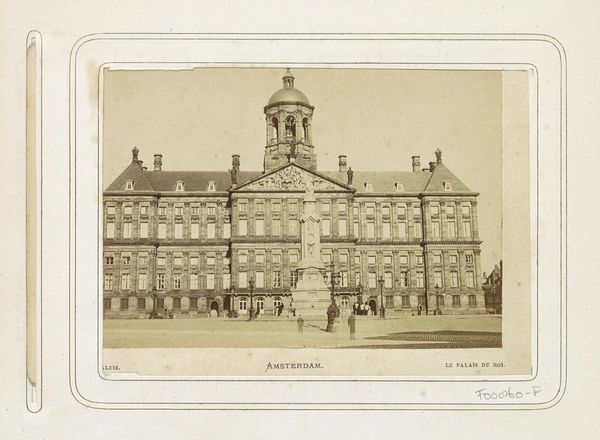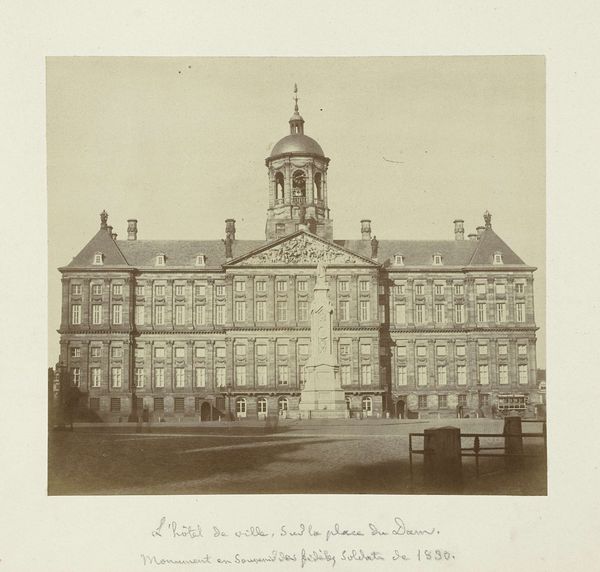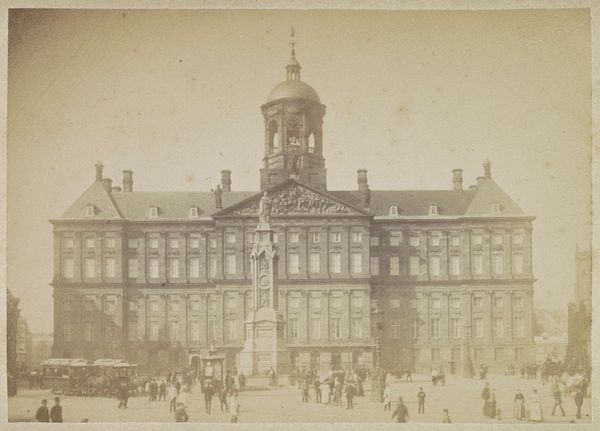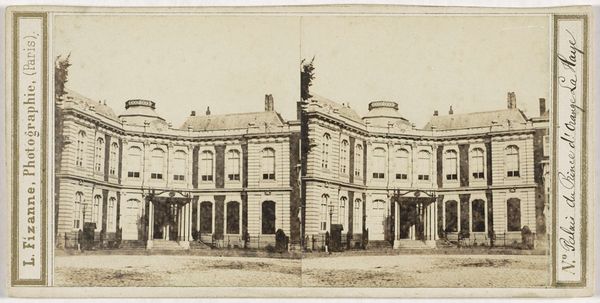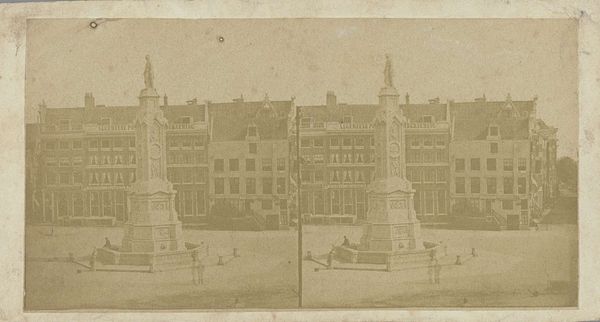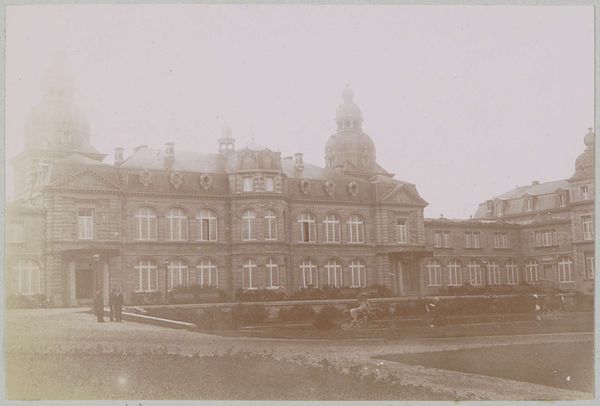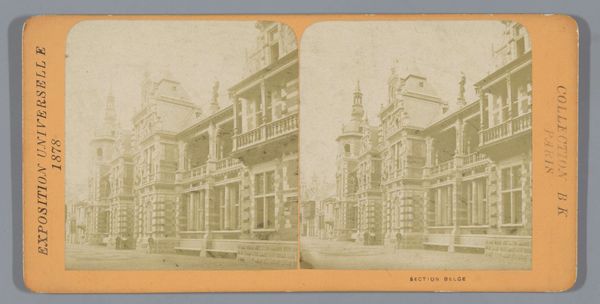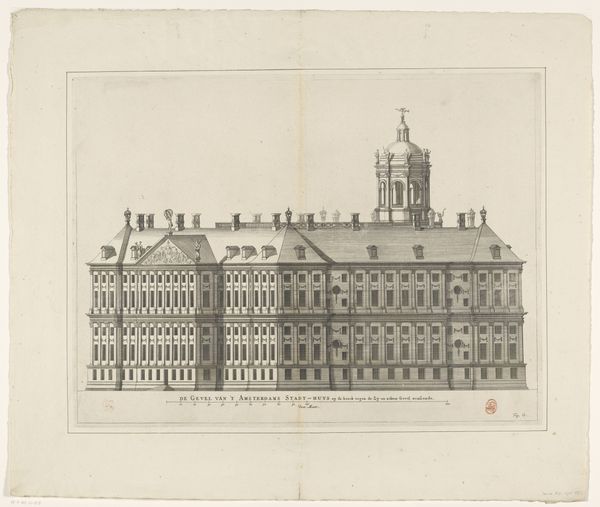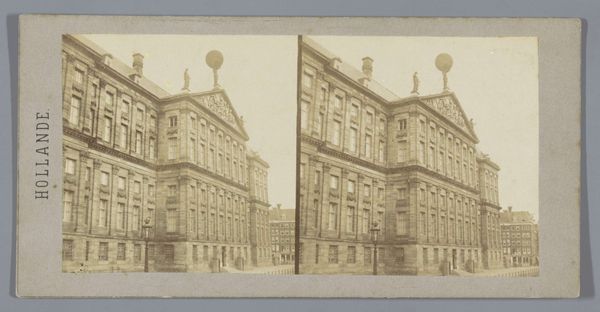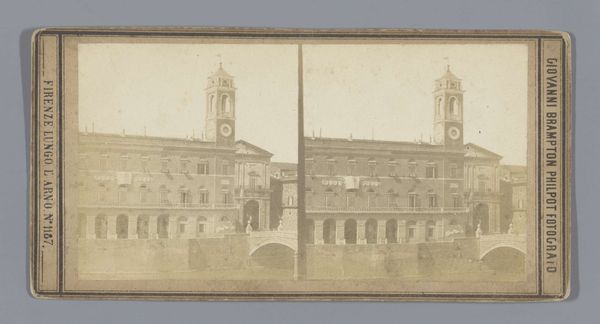
#
aged paper
#
toned paper
#
homemade paper
#
paper non-digital material
#
flat design on paper
#
personal sketchbook
#
folded paper
#
square
#
watercolour illustration
#
paper medium
#
watercolor
Dimensions: height 85 mm, width 16.8 mm
Copyright: Rijks Museum: Open Domain
Editor: This is Charles-Henri Plaut’s “Koninklijk Paleis op de Dam, Amsterdam” from 1858, a watercolor on paper. The aged quality of the paper gives the image a somewhat nostalgic feel, like looking at a postcard from a time long past. What do you see in this piece, particularly concerning the choices in medium? Curator: The choice of watercolor on paper for this rendering of the Royal Palace speaks volumes. Consider the context: 1858. Photography was emerging, rapidly democratizing image-making. So why choose the slower, arguably less precise medium of watercolor? I think Plaut is making a statement about the values embedded in traditional artistic practices, a subtle resistance to the potential displacement of human skill by technology. The delicate nature of watercolor also mirrors, perhaps ironically, the vulnerabilities of monarchy and tradition in an era of rapid social and political change. Editor: That's fascinating. I hadn't considered the tension between artistic tradition and technological advancement at the time. Do you think the choice of subject matter also plays into that resistance? Curator: Absolutely. The Royal Palace, a symbol of Dutch sovereignty and history, is rendered in a medium associated with personal expression and artistic heritage. This juxtaposes the enduring power structures with the transient, subjective nature of art. Think about whose stories get told and whose are marginalized. Is Plaut subtly questioning the supposed stability of the monarchy by depicting it in such a delicate medium? Editor: It’s interesting to consider the political undertones, even in what seems like a straightforward depiction of a landmark. Curator: Indeed. Art always exists within, and speaks to, a larger sociopolitical fabric. Reflecting on the context in which it was created provides greater depth. Editor: Thanks for sharing that perspective; I will definitely consider these aspects more critically going forward!
Comments
No comments
Be the first to comment and join the conversation on the ultimate creative platform.
